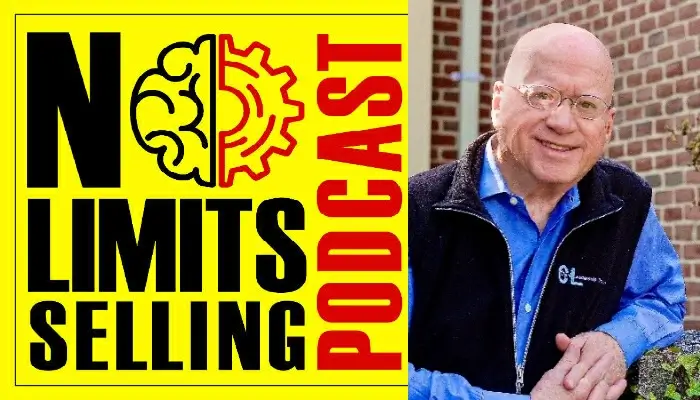Challenges in the Sales Industry by Bill Clark
Bill is a serial entrepreneur who has founded, bought, grown and sold multiple businesses. He has experienced both thrilling successes and catastrophic failures in his professional and personal life. Now, in the final chapters of his life, Bill provides insightful and strategic business knowledge based in practical experience, gained over a lifetime. His sole focus is to help others to achieve their dreams.
Bill enjoys the reputation of being a down to earth, resilient and self-aware person who is a life-long learner. His “perpetual learning mode” approach to life has allowed him to realize his own dreams of becoming an accomplished sailor and aviator, as well as an inspired leader.
Podcast Highlights:
- Always Play UP - go for higher margins and higher prices
- Self-discovery is an essential activity that great leaders do
- Let your people fail because that is where learning is done

Summary
Introduction
The document begins with an introduction by Umar Hameed, who presents Bill Clark as a seasoned professional in sales and marketing. Clark has a track record of assisting numerous companies in boosting their sales figures.
Bill Clark's Professional Background
Bill Clark delves into his professional background, recounting his early start in the sales industry. He has gained experience across a variety of sectors, which has enriched his understanding of different market dynamics. Clark also highlights his stint in the technology sector, which has given him a unique perspective on the intersection of technology and sales.
Sales Techniques and the Role of Technology
In the discussion about sales techniques, Clark emphasizes the importance of understanding the customer's needs. He believes that the key to successful sales lies in building strong relationships with customers and providing solutions that meet their specific needs. He also discusses the role of technology in modern sales, suggesting that it can be a powerful tool for understanding customer behavior and tailoring sales strategies accordingly.
Challenges in the Sales Industry
The conversation also touches on the various challenges that salespeople face. Clark mentions dealing with rejection as a significant hurdle in the sales profession. He also talks about the need for continuous learning and improvement, suggesting that the dynamic nature of the sales industry requires professionals to constantly update their skills and knowledge.
Advice for Aspiring Salespeople
Clark offers valuable advice to aspiring salespeople. He encourages them to be persistent in their efforts, learn from their mistakes, and always strive for improvement. He believes that these qualities are crucial for success in the sales industry.
Conclusion
The document concludes with Umar Hameed expressing his gratitude to Bill Clark for sharing his insights and advice. Hameed's closing remarks underscore the value of the knowledge shared during the conversation, which can be beneficial for both seasoned and aspiring sales professionals.
Questions & Answers
Who is Bill Clark in the Sales and Marketing Industry?
What is Bill Clark's Approach to Sales Techniques?
What Challenges are Common in the Sales Industry According to Bill Clark?
What Advice Does Bill Clark Offer to Aspiring Salespeople?
What is the Role of Technology in Sales as Per Bill Clark's Perspective?
How Does Bill Clark View the Importance of Customer Relationships in Sales?
What is Bill Clark's View on Dealing with Rejection in Sales?
Don’t miss this opportunity to transform your real estate career with one-on-one coaching. As an experienced real estate coach, I, Umar Hameed, am dedicated to helping you unlock your full potential and achieve your real estate goals. To learn more about who am I and my clients ↓
If you’re ready to take the next step, book an appointment with me today and begin your journey toward success in the real estate industry.
